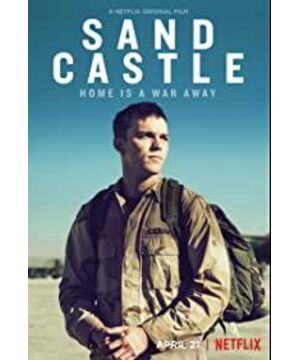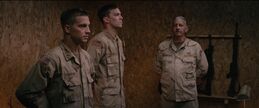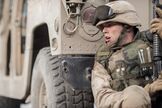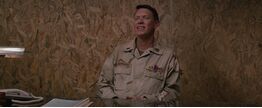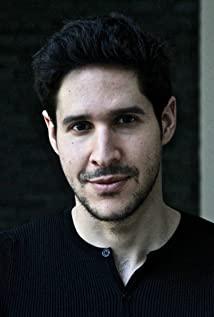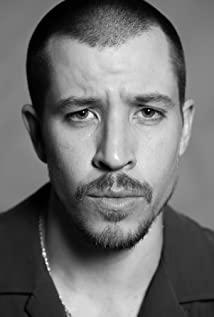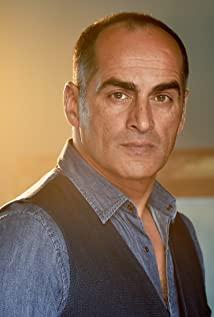Tired of the "Pearl Harbor" -style war movie of Bombshell, full of backlighting and special effects, you can choose to watch "Sand Castle" to adjust your aesthetic fatigue, and choose this simple war movie that is rare in recent years. This film is produced by Netflix, and Netflix’s first original film is actually a war film, "Beasts Without Borders" . Interestingly, Netflix did not use a unique method of showing original movies online from the very beginning. "Beasts of Boundless" was also shown in ordinary theaters at the time. However, due to profit issues, online screening was restricted by ordinary theaters. resist. I don’t know if it’s a coincidence. Since then, on the one hand, Netflix’s original movies have ceased to enter ordinary theaters. On the other hand, its taste has also begun to become unique. Many original movies have an anti-commercial independent film style. Fei's bold decentralization for the sake of originality also makes its films generally have author's film temperament. And "Sandcastle" is a modern war movie that has no bombardment, exaggeration and bitterness, but it hits people's hearts directly.
"I joined the army two months before the 9/11 terrorist attacks. I like to say,'I fight for freedom.'
But to be honest, I joined the Army Reserve to earn college tuition. "
This is the protagonist's monologue at the beginning of the film. The very stylized lines set the tone of the film and narrowed the distance between the audience and the film. This design is certainly not the first. Director Oliver Stone’s classic Vietnam War movie "Born on July 4th" even spent 145 minutes reflecting on the deeper meaning of this line, but it cannot be said that the film lacks new ideas. Why did I say at the beginning of the article that this movie is a "simple" war movie? Because the screenwriter of this film, Chris Rosner, is a former US Army soldier, this movie is his own war memoir and the debut of his feature film screenplay.
It is not uncommon for US military personnel to enter Hollywood after retiring or before retiring. Actions and war films that have made audiences and box office bloody have made these "pot-little heads" a livelihood. Retired soldiers are mostly active in the field of movie special effects, continue to give play to their expertise in weapon manipulation and military skills, and provide serious technical guidance to filmmakers who know nothing in the military field; of course, there are also developments in the entertainment industry. There are not many ex-soldiers who can climb into the field of film planning. Such as Oliver Stone or Clint Eastwood are more famous. Here is an example of a former American who is more similar to Rosner and has won an Oscar nomination for best adapted screenplay ( "Apollo 13" ) Marine Corps player William Pauls Jr. He has contributed many in-depth war film and television works to Hollywood, such as the Vietnam War drama "China Beach" (the debut) that he created based on his Vietnam War experience , the World War II movie "Flags of the Fathers" and the Gulf War movie "Bowl Head" ; Last year, he and his son (a special fighter who served in the US Air Force) joined forces with the History Channel to produce a war series "Seal Team Six" . There are few veterans who have climbed to the position of film planning, and the screenwriter Rosner also has his own experience of intertwining soldiers and filmmakers.
Rosner was born in Canton, Ohio. His father was a soldier and his father was a ranger in the Army. In 2001, Rosner joined the US Army for college tuition and was assigned to the Army Civil and Psychological Warfare Unit (Airborne Qualification) [USACAPOC(A)]. Rosner came to Iraq in 2003. Rosner’s unit is a special unit, which will be introduced below. The main task of this unit is to deal with the people in the war zone, and because of this, Rosner gives us a novel perspective that is different from ordinary war movies fighting on the front lines. After retiring, Rosner obtained a master's degree in art from South Carolina State University and wrote the script for "Sand Castle" .
"Fighting is an addiction, powerful and deadly."
This sentence comes from another Iraq war movie "The Hurt Locker" , but it is maximized in "Sand Castle" . The film shows the male protagonist fleeing from self-mutilation to refusing to obey the order of the superior to send him back to China. This Change of temperament from war exhaustion to love war. I think the film’s handling is very delicate: on the one hand, the three incidents of the death of comrades in battle, the killing of the local principal, and the bombing of the water station make the change more convincing; on the other hand, the film perfectly presents a Step by step, how people are involved in the war and become a part of the war. The death of the first comrade-in-arms was actually just arousing the grief of the male protagonist being murdered by his fellow men; when the only military-civilian connection, that is, the local principal who assisted the US military was killed and displayed by the opposition, it further prompted The male protagonist has a mentality of revenge; the bombing of the last water station directly makes the male protagonist realize that killing is the ultimate solution to the problem.
"I want 20 yuan, US dollars, no dinars."
"How do I pay you with freedom and democracy?"
The two lines of ridicule revealed irony and sadness. Because the protagonist is in the army dealing with the people in the war zone, the film also portrays three typical images of the people in the war zone: civilians who are at a loss for fear, chiefs who are calculating interests, and principals who are trying to integrate the US military and the people. The interaction between the US military and the people in the theater is also a highlight of this film. "Pay with democracy and freedom" is like a blank check issued by the US government, and it is an interpretation of the title of the film. Just as another line in the film "Bakuba is two cities, the day belongs to the United States, and the night belongs to others" , "Sand Castle" implies that the control of the US government in Iraq is faltering like a sand castle. But it's not only that. The several life-and-death entanglements between the US military and the common people in the film reveal more vividly that what is harder than the rocking sand castle is the barrier of the human heart. The killing and paralysis of the two sides makes this barrier more difficult to break through. The last water station exploded, which can be described as the most exciting bridge design of this movie. When the military and civilians temporarily ended the killing and worked together to repair the water station in peace, without any warning, an IED exploded, breaking the final peace. At this moment, the sense of powerlessness and futility in the war rushed out of the screen in an instant even with the shock wave of the explosion; and what was blown up was not only the water station repaired by the military and civilians, but also the difficult establishment between two countries or nations. A little trust.
Distrust is the origin of all wars.
"War, war never changes."
Quoting a famous quote from the classic game "Fallout" , ending the commentary on the film.
Behind the scenes of the film
The inspiration for Rosner’s script was actually influenced by Oliver Stone. He watched Stone’s Vietnam War film "Field Platoon" in the green zone of Baghdad , and suddenly had a strong desire to use his battlefield experience. The impulse expressed by the camera. After retiring and entering the campus, Rosner also resolutely chose to study film.
As Rosner's debut feature film script, this script has also been on the "blacklist" of Hollywood scripts, and the attention is evident.
At the beginning, the author mentioned that there is no big scene in the film, but it does not mean that the film’s depiction of the war scenes is not in place. The production of the film is actually very delicate. All the protagonists received professional militarization training under the leadership of former US Marine Corps member Charles K. Redlinger. The crew went to Jordan, where the sun was scorching, for shooting, and invited the Jordanian military to provide equipment support for the film. For example, the M60A1 tank of the Royal Jordanian Army at the beginning; the 30th Squadron of the Royal Jordanian Air Force that performs the MEDVAC mission [also belongs to the Jordanian Military Joint Special Operations Command (JSOC), is deployed in the name "Abdullah Bin Ha The UH-60L helicopter of the 5th Royal Flying Brigade of Prince Sim II; the C-130E/H transport aircraft belonging to the 3rd Squadron of the Royal Jordanian Air Force when the hero returned home. UH-60 and C-130 are currently active equipment of the US military, which enhances the authenticity of the film. In addition, the AH-1 that appeared at the beginning is actually a mistake. First, according to historical facts, the US Army’s AH-1 was completely retired as early as 2001 and did not participate in the Iraq War. At this time, only the Marine Corps AH-1W participated in the operation. Second, the AH-1 in the film can see the M197 three-barreled cannon, AN/ALQ-144, and a flat canopy. It can be presumed to be an F-type instead of the Marine Corps AH-1W. The 10th and 12th Squadrons of the Royal Jordanian Air Force are equipped with AH-1F.
For the handling of battle scenes, director Fernando Coimbra abandoned the current modern war movie's popular attempt to use handheld photography to create a documentary style, and instead used long shots and stable composition to shoot battle scenes many times. From the side, it can also be seen that the film has the anti-commercial nature, which is more like a literary war movie.
Director Fernando Coimbra is a Brazilian filmmaker who participated in the production of four episodes of the third season of Netflix 's popular drama "Drug Lords" .
Henry Cavill, who plays an army special forces soldier, resigned from acting in the action film "Straton" by director Simon West ( "Prison in the Air" ) for this film . He was already involved in the preparatory stage of the film. And received relevant training.
About the U.S. Army Civil and Psychological Warfare Unit. US Army Civil Affairs and Psychological Operations Command (Airborne) [US Army Civil Affairs and Psychological Operations Command (Airborne)], referred to as Army Civil Affairs and Psychological Operations Command [USACAPOC(A)], based in Prague, North Carolina Fort Bragg is the headquarters of all civil affairs and psychological warfare units in the Army Reserve. The U.S. Army Civil and Psychological Warfare Command has 10,000 military personnel, which constitute 94% of the Department of Defense's civil affairs force and 71% of the Department of Defense's psychological warfare force. The Army Reserve Civil Affairs and Psychological Warfare forces account for about 5% of the total strength of the U.S. Army Reserve Forces, but they constitute 20% of the Army Reserve's deployed forces. Civil affairs and psychological warfare officers and soldiers serve in 69 Army reserve units in 27 states across the country. The Army’s Civil and Psychological Warfare Command [USACAPOC (A)], composed of active and Army reserve members, is now a multi-component command and is reported to the US Army Reserve Commander in Fort McPherson, Georgia. Report directly from the Department (US Army Reserve Command).
View more about Sand Castle reviews


